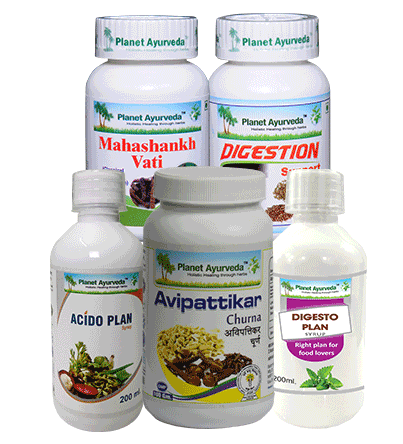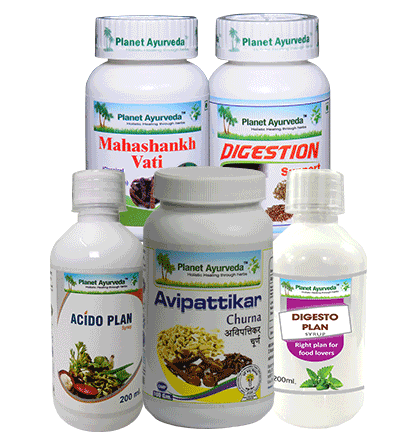ABSTRACT
Esophageal motility disorders are not reported very commonly. These conditions are estimated to be responsible for causing chest pain or dysphasia (difficulty in eating food). Esophageal motility disorders are a group of disorders that hinder the normal functioning of the esophagus. These disorders can range from total absence of contractility to extremely forceful contractions. These disorders can be diagnosed by properly observing the patterns of esophageal motility. Let's discuss it in detail!
INTRODUCTION
Esophageal Motility Disorderscomprise a variety of disorders that are majorly related to difficulty in swallowing such as insufficient motility disorder. The esophagus transports the consumed food from the mouth to the stomach. To transport the consumed particles from mouth to stomach, the muscles of the esophagus relax and tighten in a pattern similar to that of a wave. When this wave-like pattern of esophageal muscles is hindered (due to any cause), it leads to the condition of esophageal motility disorders.

CAUSES
underlying the condition of esophageal motility disorders. Some of them are weakness of the muscles of the esophagus, due to various neurological disorders etc. There may be involvement of various disorders related to brain and muscles anatomy or physiology. The patients suffering from strictures which are either benign or malignant will be at a higher risk of suffering from esophageal motility disorders also. The spasms of esophagus will result in the patient's increased risk of suffering from esophageal motility disorders.
SYMPTOMS
The person suffering from esophageal motility disorders presents various types of symptoms depending upon the condition of the body. Some of them are as follows- acid reflux, dysphagia (difficulty in swallowing), etc. The patient may also complain of losing weight in the recent past. He/ She may be suffering from pneumonia which keeps reoccurring. The person feels like the food is stuck in his throat or chest i.e. he/ she faces difficulty in swallowing the food properly. The patient will complain of lack of sleep or disturbed sleep.
DIAGNOSIS
There are different types of investigations done to diagnose the patient who presents the symptoms of esophageal motility disorders. Some of them are barium swallow study, endoscopy (helps to visualize the inner walls of esophagus), esophageal manometry and ph study.
TREATMENT
The contemporary system of medicine manages the condition of esophageal motility disorders by various types of medications. The medicines include antispasmodic medicines. Botox injection is also given in cases of specific areas of the spasms. Dilation is done through balloon dilators to get relief in cases of sphincter. In a few cases, surgical manipulation may be needed as per the patient's condition.
AYURVEDIC ASPECT
Esophageal Motility Disorders are a result of disoriented movement of the muscles of the esophagus. In the Ayurveda, Vata is said to be responsible for all types of movements in the body. So, these disorders can be correlated with the condition that arises due to the imbalance in the natural levels or working of the vata. To manage the condition various vata shamak (that subsides the vata) drugs should be used. The treatment therapy will include vata anulomana measures. Various medicines that are helpful in balancing the vata dosha are- maha shankh vati,avipattikar churna etc.
HERBAL REMEDIES FOR ESOPHAGEAL MOTILITY DISORDER BY PLANET AYURVEDA
Planet Ayurveda provides various preparations of natural herbs such as digesto plan syrup, acido plan syrup, avipattikar churna, mahashankh vati, etc. which are prepared using authentic ways and provide great results in curing esophageal motility disorders. All the herbal products manufactured here are free from chemicals, preservatives, starch, additives, colors and fillers. These products are hundred percent natural and are formulated by MD Ayurvedic doctors with deep knowledge of Ayurveda and many years of experience.


PRODUCT DESCRIPTION
1. AVIPATTIKAR CHURNA
Avipattikar churna by Planet Ayurveda is pure powdered form of the following medicinal herbs-Pippali ( Piper longum), Sonth ( Zingiber officinale), Marich ( Piper nigrum), Amla ( Emblica officinalis), Haritaki ( Terminalia chebula), Bibhitaki ( Terminalia bellirica), Nagarmotha ( Cyperus scariosus), Vida lavana (Salt), Vaividang ( Embelia ribes), Choti Elaichi ( Elettaria cardamomum), Tejpatra ( Cinnamomum tamala), Lavang ( Syzygium aromaticum), Nishoth ( Operculina turpethum), Sharkra (Sugar). The combination of these drugs are known to improve digestion, thus relieving various digestion related problems. They are good for kidney health. They also improve the cases of inflammation.
Dosage: 1 teaspoonful twice daily
2. MAHASHANKH VATI
This vati is comprised of various Ayurvedic medicinal drugs such as Shunthi (Zinziber officinale), Pippali (Piper longum), Shankha Bhasma (ash of conch shell), Tamarind Bark (Tamarindus indica), Shuddha Vatsanabha (Aconitum ferox), Rock Salt, Black Salt, and Sea Salt, etc. It is given in diseases related to gastro- intestinal tract such as indigestion, abdominal pain, irritable bowel syndrome, ulcerative colitis, acidity, bloating of gas, piles etc.
Dosage: 1-2 tablets twice or thrice daily with lukewarm water.
3. DIGESTO PLAN SYRUP
Digesto plan syrup contains the following Ayurvedic drugs -Amalaki (Emblica officinalis), Haritaki (Terminalia chebula), Bibhitaki (Terminalia bellirica), Ajwain (Trachyspermum ammi), Sonth (Zingiber officinale), Marich (Piper nigrum), Pippali (Piper longum), Jeerak (Cuminum cyminum), Dhanayak (Coriandrum sativum), Saunf (Foeniculum vulgare), Pudina (Mentha piperita), Shatapushpa (Anethum sowa), Sugar Syrup, etc. It improves digestion and also gives relief from esophageal motility disorders.
Dosage: 1-2 teaspoons twice a day or as prescribed by Ayurvedic Practitioner.
4. ACIDO PLAN SYRUP
Acido plan syrup is a medicinal syrup that contains pure extract of the following- Patola (Trichosanthes dioica), Sajjikshar (Soda-bi-carbonate), Ghrit Kumari (Aloe barbadensis ), Saunf (Foeniculum vulgare), Triphala (Terminalia chebula), (Terminalia bellirica), (Emblica officinalis); Kokum (Garcinia indica), Pitta Papada (Fumaria indica), Shatavari (Asparagus racemosus), Sugar Syrup etc. It improves the metabolism of the body. It improves the liver health of the individual.
Dosage: 1-2 teaspoons twice a day or as prescribed by an Ayurvedic Practitioner.
5. DIGESTION SUPPORT
Digestion support capsules are very good for improving digestion. It contains the following medicinal components-Amla (Emblica officinalis), Haritaki (Terminalia chebula), Bahera (Terminalia bellerica), Sounf (Foeniculum vulgare), Dhania (Coriander sativum), Pippali (Piper longum), Jeerak (Cyminum cuminum) etc. It will give relief from indigestion. It helps in maintaining the natural balance of the tridosha i.e. vata, pitta,kapha. It is also used as a health tonic for the liver. It improves the overall health of the body.
Dosage: 1 Capsule twice daily, with plain water, after meals.
CONCLUSION
The Ayurvedic principles consider that vata is the causative factor behind all the types of diseases. Managing the proper levels of vata will lead to the healthy state of the body. So, as the Ayurvedic treatment emphasizes on treating the root cause of the condition it is capable of eliminating the disease permanently. In a nutshell, it can be concluded that with appropriate and timely management of vata balances in the body, the esophageal motility disorders can be corrected in almost all of the cases.
Dr. Vikram Chauhan (MD - Ayurveda) is the CEO and Founder of Planet Ayurveda Pvt. Ltd. He is Author of the Book "Ayurveda - God's Manual For Healing". He is an Ayurveda Expert Serving People worldwide through all the Possible Mediums, Operating from Main Branch in Mohali, India. With his Vast Experience in Herbs and their Applied Uses, he is successfully treating Numerous Patients suffering from Various Ailments with the help of Purest Herbal Supplements, Diet, and Lifestyle, according to the Principles of Ayurveda. For More Details, visit www.PlanetAyurveda.com.
View more posts from this authorABSTRACT
Esophageal motility disorders are not reported very commonly. These conditions are estimated to be responsible for causing chest pain or dysphasia (difficulty in eating food). Esophageal motility disorders are a group of disorders that hinder the normal functioning of the esophagus. These disorders can range from total absence of contractility to extremely forceful contractions. These disorders can be diagnosed by properly observing the patterns of esophageal motility. Let's discuss it in detail!
INTRODUCTION
Esophageal Motility Disorderscomprise a variety of disorders that are majorly related to difficulty in swallowing such as insufficient motility disorder. The esophagus transports the consumed food from the mouth to the stomach. To transport the consumed particles from mouth to stomach, the muscles of the esophagus relax and tighten in a pattern similar to that of a wave. When this wave-like pattern of esophageal muscles is hindered (due to any cause), it leads to the condition of esophageal motility disorders.

CAUSES
underlying the condition of esophageal motility disorders. Some of them are weakness of the muscles of the esophagus, due to various neurological disorders etc. There may be involvement of various disorders related to brain and muscles anatomy or physiology. The patients suffering from strictures which are either benign or malignant will be at a higher risk of suffering from esophageal motility disorders also. The spasms of esophagus will result in the patient's increased risk of suffering from esophageal motility disorders.
SYMPTOMS
The person suffering from esophageal motility disorders presents various types of symptoms depending upon the condition of the body. Some of them are as follows- acid reflux, dysphagia (difficulty in swallowing), etc. The patient may also complain of losing weight in the recent past. He/ She may be suffering from pneumonia which keeps reoccurring. The person feels like the food is stuck in his throat or chest i.e. he/ she faces difficulty in swallowing the food properly. The patient will complain of lack of sleep or disturbed sleep.
DIAGNOSIS
There are different types of investigations done to diagnose the patient who presents the symptoms of esophageal motility disorders. Some of them are barium swallow study, endoscopy (helps to visualize the inner walls of esophagus), esophageal manometry and ph study.
TREATMENT
The contemporary system of medicine manages the condition of esophageal motility disorders by various types of medications. The medicines include antispasmodic medicines. Botox injection is also given in cases of specific areas of the spasms. Dilation is done through balloon dilators to get relief in cases of sphincter. In a few cases, surgical manipulation may be needed as per the patient's condition.
AYURVEDIC ASPECT
Esophageal Motility Disorders are a result of disoriented movement of the muscles of the esophagus. In the Ayurveda, Vata is said to be responsible for all types of movements in the body. So, these disorders can be correlated with the condition that arises due to the imbalance in the natural levels or working of the vata. To manage the condition various vata shamak (that subsides the vata) drugs should be used. The treatment therapy will include vata anulomana measures. Various medicines that are helpful in balancing the vata dosha are- maha shankh vati,avipattikar churna etc.
HERBAL REMEDIES FOR ESOPHAGEAL MOTILITY DISORDER BY PLANET AYURVEDA
Planet Ayurveda provides various preparations of natural herbs such as digesto plan syrup, acido plan syrup, avipattikar churna, mahashankh vati, etc. which are prepared using authentic ways and provide great results in curing esophageal motility disorders. All the herbal products manufactured here are free from chemicals, preservatives, starch, additives, colors and fillers. These products are hundred percent natural and are formulated by MD Ayurvedic doctors with deep knowledge of Ayurveda and many years of experience.


PRODUCT DESCRIPTION
1. AVIPATTIKAR CHURNA
Avipattikar churna by Planet Ayurveda is pure powdered form of the following medicinal herbs-Pippali ( Piper longum), Sonth ( Zingiber officinale), Marich ( Piper nigrum), Amla ( Emblica officinalis), Haritaki ( Terminalia chebula), Bibhitaki ( Terminalia bellirica), Nagarmotha ( Cyperus scariosus), Vida lavana (Salt), Vaividang ( Embelia ribes), Choti Elaichi ( Elettaria cardamomum), Tejpatra ( Cinnamomum tamala), Lavang ( Syzygium aromaticum), Nishoth ( Operculina turpethum), Sharkra (Sugar). The combination of these drugs are known to improve digestion, thus relieving various digestion related problems. They are good for kidney health. They also improve the cases of inflammation.
Dosage: 1 teaspoonful twice daily
2. MAHASHANKH VATI
This vati is comprised of various Ayurvedic medicinal drugs such as Shunthi (Zinziber officinale), Pippali (Piper longum), Shankha Bhasma (ash of conch shell), Tamarind Bark (Tamarindus indica), Shuddha Vatsanabha (Aconitum ferox), Rock Salt, Black Salt, and Sea Salt, etc. It is given in diseases related to gastro- intestinal tract such as indigestion, abdominal pain, irritable bowel syndrome, ulcerative colitis, acidity, bloating of gas, piles etc.
Dosage: 1-2 tablets twice or thrice daily with lukewarm water.
3. DIGESTO PLAN SYRUP
Digesto plan syrup contains the following Ayurvedic drugs -Amalaki (Emblica officinalis), Haritaki (Terminalia chebula), Bibhitaki (Terminalia bellirica), Ajwain (Trachyspermum ammi), Sonth (Zingiber officinale), Marich (Piper nigrum), Pippali (Piper longum), Jeerak (Cuminum cyminum), Dhanayak (Coriandrum sativum), Saunf (Foeniculum vulgare), Pudina (Mentha piperita), Shatapushpa (Anethum sowa), Sugar Syrup, etc. It improves digestion and also gives relief from esophageal motility disorders.
Dosage: 1-2 teaspoons twice a day or as prescribed by Ayurvedic Practitioner.
4. ACIDO PLAN SYRUP
Acido plan syrup is a medicinal syrup that contains pure extract of the following- Patola (Trichosanthes dioica), Sajjikshar (Soda-bi-carbonate), Ghrit Kumari (Aloe barbadensis ), Saunf (Foeniculum vulgare), Triphala (Terminalia chebula), (Terminalia bellirica), (Emblica officinalis); Kokum (Garcinia indica), Pitta Papada (Fumaria indica), Shatavari (Asparagus racemosus), Sugar Syrup etc. It improves the metabolism of the body. It improves the liver health of the individual.
Dosage: 1-2 teaspoons twice a day or as prescribed by an Ayurvedic Practitioner.
5. DIGESTION SUPPORT
Digestion support capsules are very good for improving digestion. It contains the following medicinal components-Amla (Emblica officinalis), Haritaki (Terminalia chebula), Bahera (Terminalia bellerica), Sounf (Foeniculum vulgare), Dhania (Coriander sativum), Pippali (Piper longum), Jeerak (Cyminum cuminum) etc. It will give relief from indigestion. It helps in maintaining the natural balance of the tridosha i.e. vata, pitta,kapha. It is also used as a health tonic for the liver. It improves the overall health of the body.
Dosage: 1 Capsule twice daily, with plain water, after meals.
CONCLUSION
The Ayurvedic principles consider that vata is the causative factor behind all the types of diseases. Managing the proper levels of vata will lead to the healthy state of the body. So, as the Ayurvedic treatment emphasizes on treating the root cause of the condition it is capable of eliminating the disease permanently. In a nutshell, it can be concluded that with appropriate and timely management of vata balances in the body, the esophageal motility disorders can be corrected in almost all of the cases.

